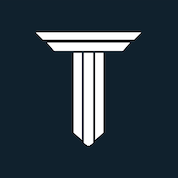There is no greater long term investment in real estate than a quality rental property. The right rental will not only provide short term cash flow in the way of surplus rents received, but can give you the potential for appreciation years down the road. All the while you can take advantage of many tax breaks afforded to rental property owners. To maximize your rental property bottom line you need to manage it wisely. Ideally you will have enough cash flow to hire a dedicated property manager and let them run everything for you, but this isn’t always the case. There are times when self-managing the property makes the most sense for a variety of reasons. To get the most from the property you need to be savvy in a number of key management areas. Here are the five biggest challenges with self-managing a rental property.
- Finding good tenants. Your rental property revolves around your tenants. If you find good tenants you won’t have to worry about collecting rent or getting phone calls all hours of the night. On the flip side if your tenant stops paying or constantly causes damage to the property you will be forced to take action. Most of the problems can be cured by simply taking your time and finding the right tenants. As difficult as it might be you need to fight the urge to rent to the first interested tenant that comes along. Develop a system of screening so you know as much as possible about who you may be renting to. You will never be 100% certain with a tenant, but with a good application and follow up you can have a pretty good idea. Good tenants can make rental property ownership almost seem too easy at times. Bad tenants will have you question what you are doing with the property.
- Maintenance: One of the biggest mistakes inexperienced landlords make is thinking that their rental is indestructible. The reality is that even properties that are updated need work from time to time. It is essential to start building a team you can reach out to when you need them as soon as you take ownership. Every landlord should have a handy person, plumber and electrician in their phone. You can bet at some point during the lease you will have a clogged toilet or a dishwasher that stops working. How quickly, and efficiently, you can handle these issues goes a long way in building trust with your tenants. If you drag your feet your tenants will feel you don’t really care about the property so why should they. They won’t be as inclined to go the extra mile to take care of things, which will ultimately decrease the life of many of the items in it. This will shorten the useful life of your furnace, dishwasher, washing machine, dryer and more. Maintenance items will happen on every property. Prepare yourself now for the inevitable.
- Turnover: Your tenants will not stay in the property forever. Even tenants that love everything about rental eventually move on. When they do you will have a busy stretch that can be difficult to juggle if you don’t know what you are doing. You need to balance finding new tenants while still being fair to your existing ones. You should come up with an end of lease checklist that you can provide your tenants so they know what needs to be done, and when. Many tenants simply assume they can do some marginal cleaning, hand over their keys and collect their security deposit. Your checklist should be as detailed as possible so there is no misunderstanding as to your expectations. You should also come up with a timeline for your incoming tenants. If you need a few days to have the property cleaned and painted you should make this clear, and reflected in your lease.
- Rent collection: Inexperienced landlords simply assume that they will receive their rent on time every month. While this is most likely the case, it is not automatic. There are times when you will have to chase the lease for a few days, a few weeks or possibly longer. How you go about this can either defuse the situation, or make things much worse. If you leave demanding voicemails on the first of the month, you run the risk of angering your tenants and extending the problem. However, if you don’t do anything your tenants may feel they can send the rent when they please and do what they want. There is a delicate balance in being stern but without overplaying your hand. This is a trait you will learn over time, but most likely have to use at some point in your ownership.
- Upkeep: You need to treat a rental property like an asset. Like any other asset you need to constantly build on it to maximize the value. Every year you should perform maintenance on the furnace, HVAC, water heater and more. Additionally you should plan on cleaning the gutters, painting the walls and updating one major item every year. The longer you avoid these items the more they add up and the more expensive they become down the road. In areas of high demand your property will be compared to the other properties in the market. If yours is worn down and not taken care of it will be reflected in the demand, and ultimately the rent received.
One of the great things about investing in real estate is that anyone can do it. However, you need to know exactly what you are getting into and how to run a rental before diving head first into one.



